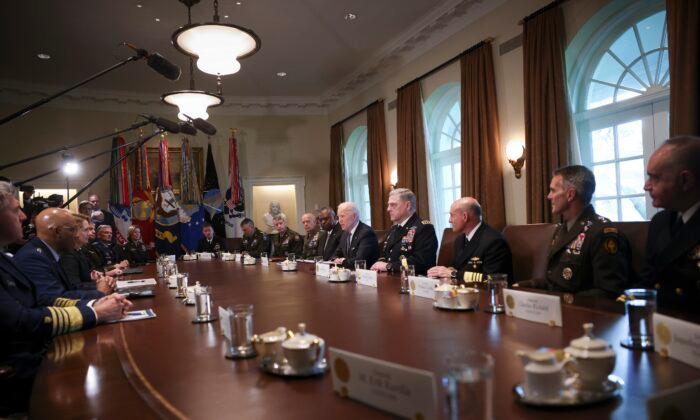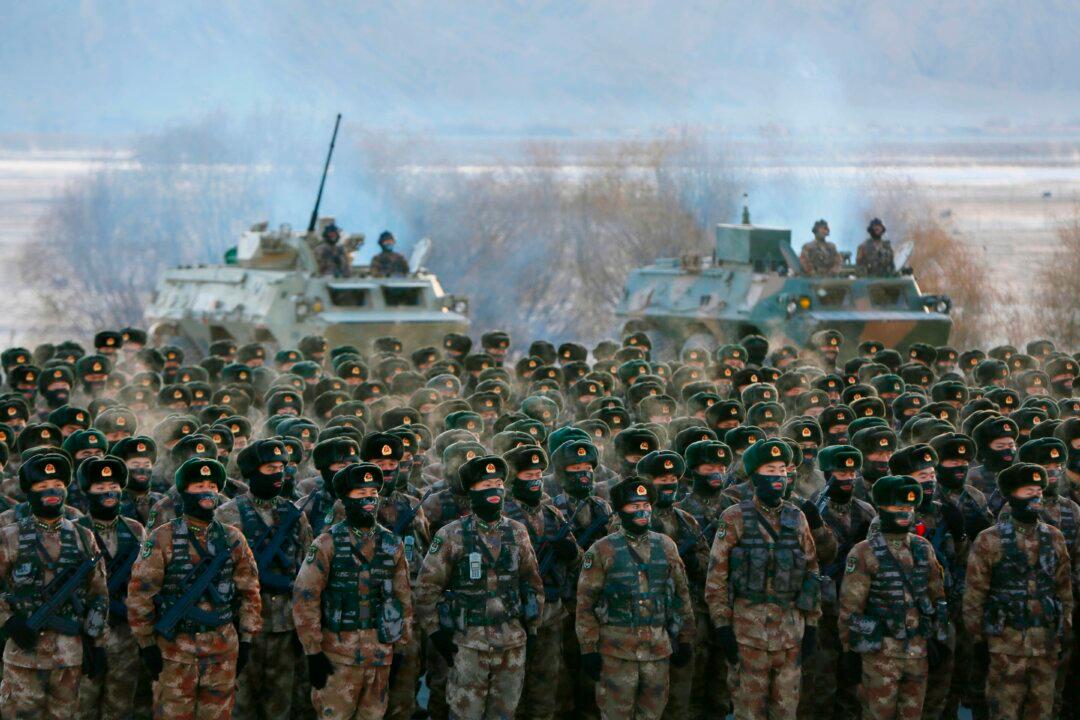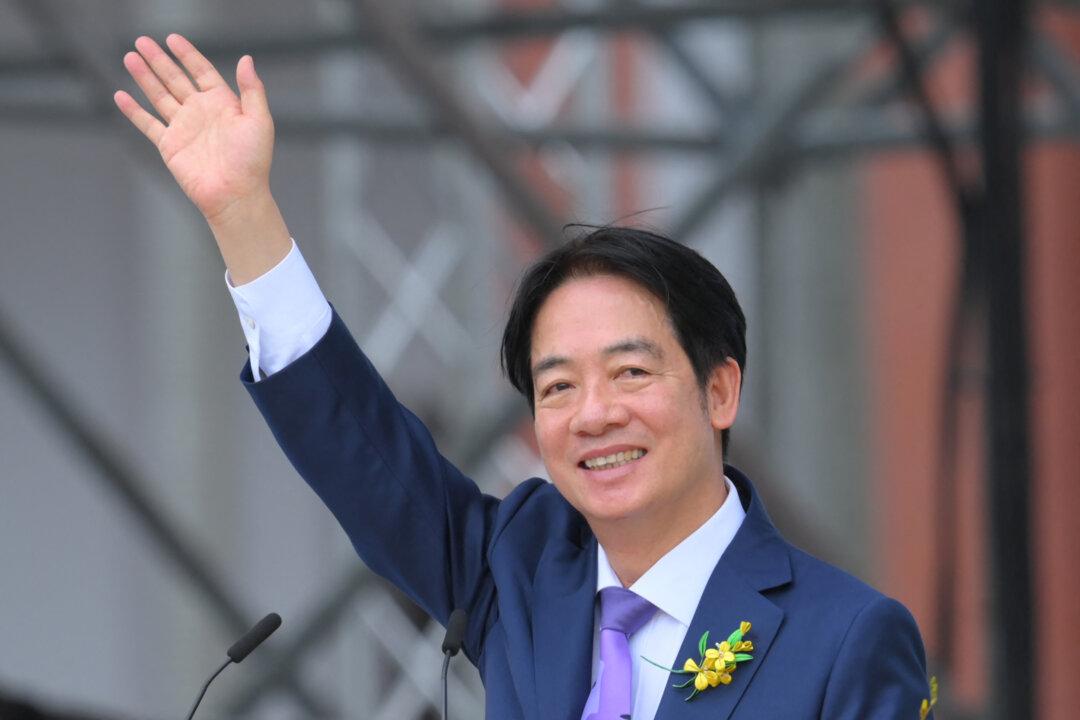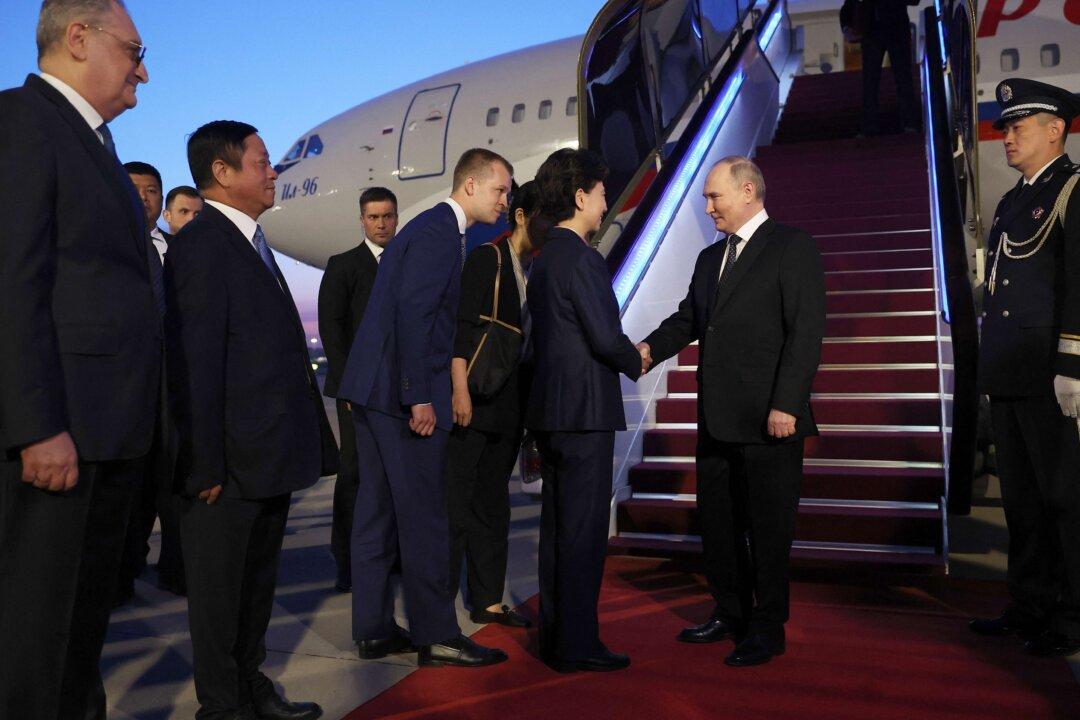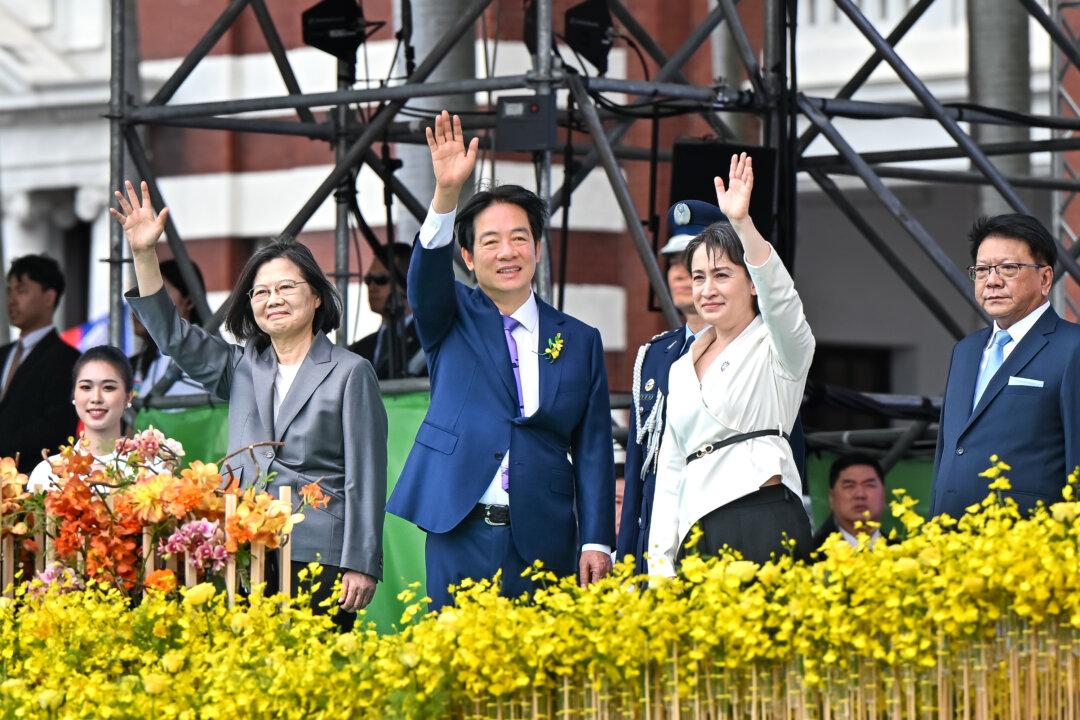The ideological upheaval in the United States between traditional liberalism and progressivism introduces a major peril for the U.S. military.
There is the danger that the officers and enlisted service members are forced to adapt to progressive ideology rather than sustain their professional autonomy. The loss of a professional focus on military art and science due to progressive demands on the services is a grave mistake for the United States.
We’ve Seen This Before: The Disasters of the French Revolutionary Army and the Red Army
The French Revolutionary army, from 1789 until Napoleon Bonaparte’s rise to military leadership in 1796, three years before his coup d’état in 1799, was plagued by a high external threat environment and a breakdown in civil-military relations.France’s civil-military relations were in total disarray because the officers of the Old Regime, who were drawn from the aristocracy and thus had loyally served the Bourbon monarchy, had either fled into exile or were forced to resign their commissions, been imprisoned, or executed.
Reasonably, the French revolutionaries had considerable distrust that these officers would serve the revolutionary regime. The considerable internal and external threats to the revolution allowed the Jacobins to rise to power and implement the Reign of Terror (also called the Great Terror, 1793–1794) to purge their enemies, which terminated only with French revolutionary leader Maximilien Robespierre’s overthrow by the Thermidor reaction in July 1794.
The Terror also adversely impacted the officers not only of the Old Regime but also those who had been promoted to fill the commissions of a largely vacated officer corps. The defection in 1793 of the French general, Charles-François du Périer Dumouriez, to the Austrians sparked the creation of a commissar system of political commissioners (commissaire politique) imposed by the Committee on Public Safety. The role of the political commissioners was to monitor the political loyalty of the generals and subordinated officers.
Using the political commissioners as their instrument, the Committee on Public Safety generated the Montagnard Terror of 1793-1794 against the officer corps to prevent Caesarism or Cromwellism on the part of ambitious generals. Eighty-four generals would be executed before the Thermidor reaction overthrew the Jacobins. Of the 1,378 generals serving, there would be 994 official punishments such as arrest, suspension, loss of rank, or execution. While the mass army of Lazare Carnot and later Napoleon’s genius saved the revolution, political interference hobbled it.
The Bolsheviks had considerable suspicion of the military due to a mistrust of the Tsarist army and a desire to create a new military based on socialist principles and “scientific” development of military thought. Bolshevik leader Vladimir Lenin was concerned that a professional standing army, by the traditions encompassed in military values and training, would inevitably become reactionary and counterrevolutionary.
In his book, “The Revolution Betrayed,” Leon Trotsky quipped that “the Army is a copy of society and suffers from all its disease, usually at a higher temperature.”
The answer devised by the Bolsheviks was to create a new army recruited from the right classes and with sufficient class consciousness and directly controlled by the Communist Party of the Soviet Union. The military should be subordinate to the Party.
In sum, the Bolsheviks sought to create a military completely controlled by the Communist Party, which would serve as the model for the People’s Liberation Army during the Chinese civil war and once the Chinese regime was in power. Political considerations, socialist ideology, and socialist military science would govern civil-military relations, and a strict hierarchy within the Party became inevitably dominant.

To avoid the risk of a revived professional officer corps reasserting itself, the Bolsheviks turned to the same precaution—the employment of commissars—as the Committee on Public Safety had adopted during the French Revolution. The Bolsheviks introduced political commissars (also called political officers, politruk) to monitor officers and men regarding their loyalty and provide and sustain their political education in socialism.
Proving Trotsky Right: A US Civilian and Military Leadership More Progressive Than Progressivism
Until recently, the U.S. military has proved Trotsky wrong. The problems of American society were addressed by a professional military—one where civilians recognized the importance of an autonomous professional domain for the military.There have been political pressures exercised against the military before, such as during the Clinton administration’s effort to permit—in the argot of the 1990s—gays and lesbians to serve openly—which resulted in the “don’t ask, don’t tell” compromise, or the Obama administration’s decision to permit women to serve in combat roles.
However, the progressive assault on the military is unending and, so far, is successful at chipping away at the professional military domain that has been one of the fundamental sources of U.S. military effectiveness. Given the deeper changes in American society, there is now the risk that Trotsky’s observation is increasingly accurate: civilian and military leadership might become more progressive than progressivism.
A military that embraces progressivism is a military that has sacrificed its professionalism and is well down the road toward politicization akin to the French revolutionary military or Red Army.
For the Biden administration, the concomitant loss of military effectiveness seems to be an acceptable price to pay for the victory of conquering a professional military and imposing an ever more politicized civilian and military leadership. As security commitments are the pivot upon which U.S. interests and those of its allies depend, the corrosion of the professional military invites military failure, defeat, and the loss of longstanding allies.
The United States used to know how to sustain a professional military. The forced memory loss is part of the “Great Forgetting” of the knowledge, behavior, culture, skills, practices, and abilities that led to victory in the Cold War. It is not too late to reverse the decline, but it would require that progressives change course. As they certainly will not, arresting the fall will be depended upon awareness of the problem and the outcomes of 2022 and 2024.
